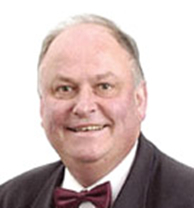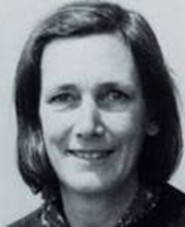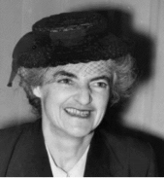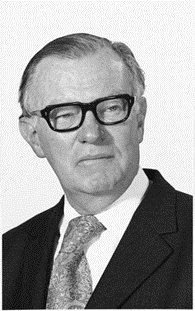Chris Brook

Chris Brook was a long term and highly valued member of the NBA Board. He was a jurisdictional member from 2003-2007 and 2011-2022, the longest serving board member. He was a key driver and supporter of many blood sector reforms over more than two decades, Brook contributed enormously in a sustained and impactful way to a wide range of policy and operational blood sector issues.
As a member of the Blood Review Implementation Steering Committee, he had responsibility for guiding the implementation of the recommendations of the Review of the Australian Blood Banking and Plasma Product Sector (the ‘Stephen Review’) and the drafting and negotiation of the National Blood Agreement and National Blood Authority Act 2003.
He was a member of the Jurisdictional Blood Committee (JBC) as Victorian representative. He was also a member of the government-stakeholder working group which developed the arrangements for full national funding for access to recombinant clotting factor products for all haemophilia patients in Australia. This represented a breakthrough in the provision of safe and secure supply therapies for patients with this debilitating and life-threatening chronic disease.
Under his stewardship as Chair, the JBC Intravenous Immunoglobulin Working Party guided the detailed clinical review work to develop criteria for patient access to publicly funded immunoglobulin in Australia. Based on this seminal initial work, a National Immunoglobulin Governance Program has been implemented to enable the sustainable ongoing provision of immunoglobulin for a wide range of beneficial uses within a high standard of clinical governance.
Some of the formal accolades Brook received over the years in recognition of his significant contribution to public health policy and administration include honorary life membership to the International Society for Quality in Health Care, the Public Service Medal, the Gold Medal for Lifetime Achievement in Safety and Quality and the National Emergency Medal.
Sir Ninian Stephen

Sir Ninian Stephen served as a former High Court Judge and Governor General of Australia. The inauguration of the National Blood Authority is credited to Sir Stephen.
Sir Stephen chaired the Review of the Australian Blood Banking and Plasma Product Sector in 2001 which gave rise to the National Blood Agreement and the establishment of the National Blood Authority. The Stephen Review noted the need for changes to the inconsistent and fragmented arrangements that applied to the blood sector at that time and recommended the strengthening of the arrangements for the coordination and oversight of Australia's blood supply at a national level.
The National Blood Authority has gone on to provide adequate, safe, secure and affordable supply of blood products and blood-related products services in Australia.
Ruth Sanger

Ruth Sanger began as a haematologist at the Red Cross Blood Transfusion Service in Sydney and her research on blood groups has been fundamental in the world of blood.
She was instrumental in the discovery of genetic mapping of blood group genes on X chromosomes, long before the genomics era. Sanger also wrote many papers and a book about red blood cell antigens and rhesus blood grouping with Robert Race, whom she went on to marry. Sanger’s collective work paved the way towards safer blood transfusions and their book, Blood Groups in Man, was a significant clinical reference for 30 years, especially used for blood banking.
Her work led to her becoming the director of British Research Medical Council and was then made a fellow of the British Royal Society. Sanger was associated with the International Society of Blood Transfusions, as well as many other affiliates around the world.
Sanger has received multiple awards for her research contributions, but an award has also been made in her honour by The Australian & New Zealand Society of Blood Transfusions. The Ruth Sanger Award is the highest award to recognise meaningful contributions made to the blood transfusion field.
Lucy Bryce

Dr Lucy Bryce established the first Australian blood service in Victoria, with the Australian Red Cross Society in 1929.
She was involved with the Victorian division of the Australian Red Cross Society to create a panel of blood donors who could be deployed to hospitals as required. As the honorary director of the Victoria Red Cross Blood Transfusion Service, she was responsible for the medical treatment of donors and laboratory testing. Through this work, Dr Bryce supervised the establishment of a blood reserve in case of major disaster and developed new techniques to store blood during the Spanish Civil War. This work later become critical during World War II, where she also supervised more complex research developments and transfusion services. Dr Bryce participated in the establishment and management of blood banks and storage of serum that were used for military and civilians, to prepare for possible air attacks.
Although retired as the honorary director in 1954, Dr Bryce continued as the chair of the transfusion committee until 1966. In 1951, she was appointed as a Commander of the Order of the British Empire for her contributions as the director and work in blood transfusions.
Robert Walsh

Robert Walsh was the inaugural Director of the New South Wales Red Cross Blood Transfusion Service.
During World War II, he became a medical officer at the Red Cross Society, helping to recruit a panel of 10,000 donors to supply blood in the event of possible air attacks. This led to the change of the New South Wales Blood Transfusion Service to be military based, where Walsh enlisted himself in the Army. He was posted to an army unit established for the preparation of blood serum for the injured veterans, where he also became the Secretary at the Red Cross Blood Transfusion Committee.
Due to the outstanding operations of the New South Wales Red Cross Blood Transfusion Service during the war, it was decided that the service should continue after the war had ended. In 1946, Walsh was appointed the first Director of the New South Wales Red Cross Blood Transfusion Service and continued to hold the position for another 20 years.
Walsh had an interest in iron metabolism and the role of iron in the formation of red blood cells, which was a clinically important concept for blood donors who need to replace their blood count after their donations. His interest in the use of available antibodies for the identification of blood groups during unexpected agglutination led to the discovery of the first anti-S serum. This ignited an abundance of interest in population studies of blood group antigens, as well as Aboriginal and Pacific Islander population studies.
Walsh was appointed Order of the British Empire and The Order of Australia for his benefaction at the Red Cross Blood Transfusion Service, as well as being awarded the James Cook medal of the Royal Society of New South Wales.
References
Professor Chris Brooke
Sir Ninian Stephen
- Structure, Governance and Authority in the Blood Sector | National Blood Authority Annual Report 2017–18
- Vale Sir Ninian Stephen - Haemophilia Foundation Australia(Opens in a new tab/window)
Robert Walsh
- Walsh, Robert John - Faculty of Medicine Online Museum and Archive (sydney.edu.au)(Opens in a new tab/window)
- Biography - Robert John Walsh - Australian Dictionary of Biography (anu.edu.au)(Opens in a new tab/window)
Ruth Sanger
- Sanger, Ruth Ann - Person - Encyclopedia of Australian Science and Innovation (eoas.info)(Opens in a new tab/window)
- Sanger, Ruth Anne - Woman - The Australian Women's Register (womenaustralia.info)(Opens in a new tab/window)
Dr Lucy Bryce
Last updated: 20 Sep 2024
